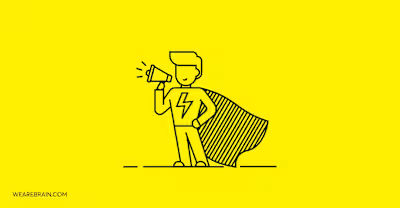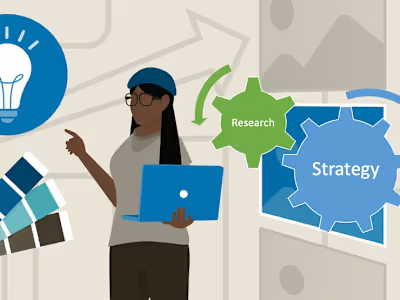Advice for Independent Product Managers from a former Consultant
If you ask 10 different Product Managers what they do, there’s a good chance that the first thing they’ll do is sigh and start “Well, it depends …” or some variation of it. According to Wikipedia Product management is an organisational function within a company dealing with new product development, business justification, planning, verification, forecasting, pricing, product launch, and marketing of a product or products at all stages of the product lifecycle
This basically means that if a company or person wants to launch something new the product manager is the one responsible for coming up with the thing, figuring out if the thing is worthwhile, building the thing, selling the thing, and making sure the thing is able to keep making money and what to do when it doesn’t anymore.
As a product manager, you’re being paid to think, and in the context of a company, it makes perfect sense to have a role like this. Companies need someone to spearhead new initiatives and see them through. It’s a critical role that everyone can understand the value of.
But …the problem with high-value roles is that few people/organisations want to out-source them. Which makes it difficult to be independent as a Product Manager. Your value as a Product Manager is being integral to the projects' success, so it makes no sense to let you walk away if you’re as good as you say you are. And this is probably the most challenging thing you’ll face as an Independent Product Manager.
Luckily, there’s another group of people who have this exact same problem that we can learn from. Management Consultants also get paid to think in very similar ways that Product Managers do. And as a former Management Consultant, here are some things I’ve learnt about being independent that have helped me on my journey
1. You’re not a replacement for their thinking teams, you’re an enhancement
In almost every situation where I’ve acted as an Independent Product Manager, there has been at least one person on the team who’s role was almost the same, usually it’s a potential CEO or a Team Lead. This person is either doing or planning to do all the things you’re supposed to be doing and in that case communicating why they should pay you can be difficult. So instead of trying to convince them that you are going to come up with a winning strategy for them, convince them that you’re a tool they can use to enhance the process of coming up with a winning strategy. Because that’s what you’ve been trained to do.
For example, you know that feeling of being mentally stuck and the answer is at the tip of your tongue and then you talk at a friend for like 30mins and suddenly the answer is there? That’s what you want this person to feel. You want them to believe that you’re the secret sauce to unlocking that last bit of the puzzle that’s going to bring them to success.
2. Communicate your Value without devaluing theirs
Most of the time the people who are going to be looking to hire an external Product Manager are going to be smart. In my experience they’re usually subject matter experts or just genuinely smart people. You need them to understand that you’re not trying to outsmart them (which you usually can’t) but instead you’re bringing something completely different to the table.
I do this not by focusing on how much I know about their industry or product line but instead focusing on what I call one of my two super powers.
The sheer breadth of my knowledge. I know a little about a lot of things which means I can usually come up with an angle you’re not thinking about
I’m an MVP queen, I can help you strip your product down to the barebones and help build a prototype with the least amount of money. Which is super helpful in testing and validating ideas
You want your client to think of you as someone who can give them super powers as well, so think of what you can help them do that they don’t have the time or experience to do for themselves.
3. Your Network will be the strongest thing you have
As a Product Manager your strongest portfolio are going to be the people you’ve interacted with. It’s a hard (and very annoying) truth. Unlike other independents, you’re being paid to think and that’s a very difficult thing to prove.
Think about it … why do you think top consulting firms are able to charge millions of dollars for their services. It’s all about reputation, the minute a consulting firm loses their reputation, they are done for (think what happened to Arthur Andersen after the Enron scandal). And as an independent you need to start building this reputation and the people you work with are the best way to do it. Everyone needs to walk away from you feeling like they got something they couldn’t have gotten anywhere else. And you’re going to want to encourage them to tell the world about it.
Your first independent jobs are likely going to come from someone who has heard about you from a friend or read an article you wrote liked a series of tweets that you posted. So you need to be super intentional about building your reputation.
4. Have Deliverables and Outcomes
Let’s face it, it’s hard to get people to pay for thoughts. People need something to hold on to. So you need to have something tangible that they can say is what they got out of your time together. If you’ve ever worked with a consulting firm, notice they’ll outline what deliverables you’ll get at different parts of the project. Not only does this give the client something that they can have forever, but it also helps keep you accountable.
If you’re struggling with coming up with deliverables here are two of my favourites:
Roadmaps & Strategy Documents: Roadmaps are a great deliverable because they give your client a sense of security. Once you’re no longer on the project they have this tangible thing that they can refer to that captures all the great work you did together and that shows them how to get from point A to point B.
Wireframes, Flow Charts & Prototypes: These are my favourite especially clickable prototypes (Figma is great for this). A prototype is the crystallization of an idea. It takes abstract thinking and turns it into a tangible result. And the warm glow you and your client get from seeing their vision come to life is amazing.
There are lots of Product Management frameworks you can use to come up with deliverables you can share with your clients so don’t hesitate to package your favourites (and credit the creator as necessary)
Summary: Pitching yourself Product Management Consultant
Product Management is hard and finding opportunities for it can be difficult. But I genuinely that thinking of yourself as a consultant is a great way to market your services.
Like this project
Posted May 13, 2021
Likes
0
Views
259





